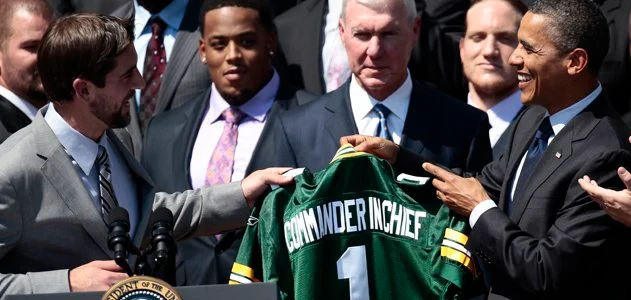
Sports and politics have always been intertwined, whether we like it or not. From Jesse Owens at the 1936 Olympics to Colin Kaepernick taking a knee during the national anthem, athletes have used their platforms to bring attention to important social and political issues. In this article, we’ll explore the intersection of sports and politics and how athletes have used their influence to effect change.
The Role of Athletes in Society
Athletes hold a unique position in society. They have the ability to captivate audiences and inspire change. When athletes use their platform to speak out on social and political issues, they have the potential to reach millions of people. This is a responsibility that many athletes take seriously.
In recent years, we’ve seen an increase in athlete activism. LeBron James has spoken out on issues such as police brutality and racial inequality. Megan Rapinoe has been an outspoken advocate for LGBTQ+ rights. These athletes are using their influence to bring attention to important issues and to effect change.
The Power of Sports in Politics
Sports have always had a way of bringing people together. Whether it’s a Super Bowl party or a pick-up game of basketball, sports have the ability to unite people from different backgrounds. This is something that politicians have recognized.
Politicians have long used sports to gain support from their constituents. From throwing out the first pitch at a baseball game to attending a championship parade, politicians have used sports as a way to connect with voters. However, athletes have also used sports as a way to influence politics.
During the Civil Rights Movement, athletes such as Muhammad Ali and Bill Russell used their platform to speak out against racial injustice. Their activism helped to bring attention to the issue and to effect change. Today, athletes continue to use their influence to bring attention to important social and political issues.
The Challenges of Speaking Out
While athletes have the ability to effect change, speaking out can also come with challenges. Athletes risk losing sponsorships and endorsements when they speak out on controversial issues. They also face backlash from fans who disagree with their stance.
Colin Kaepernick is a prime example of the challenges that athletes face when they speak out. Kaepernick’s decision to take a knee during the national anthem to protest police brutality and racial inequality was met with both support and criticism. Kaepernick became a lightning rod for controversy, and he has been unable to find work in the NFL since becoming a free agent in 2017.
Despite the challenges, many athletes continue to speak out on important issues. They recognize the importance of using their platform to effect change, even if it means facing backlash and criticism.
The Future of Athlete Activism
Athlete activism is not going away anytime soon. In fact, it’s likely to continue to grow in the coming years. As athletes become more aware of their influence, they will continue to use their platforms to speak out on important issues.
We’ve already seen the impact that athlete activism can have. In 2020, the NBA went on a hiatus after players boycotted games to protest police brutality and racial injustice. This was a powerful moment that brought attention to the issue and forced people to confront uncomfortable truths.
As we move forward, it’s important to remember the role that athletes can play in effecting change. Athletes have a unique platform that they can use to bring attention to important issues and to effect change. We should support athletes who speak out on issues that matter and recognize the impact that they can have.


